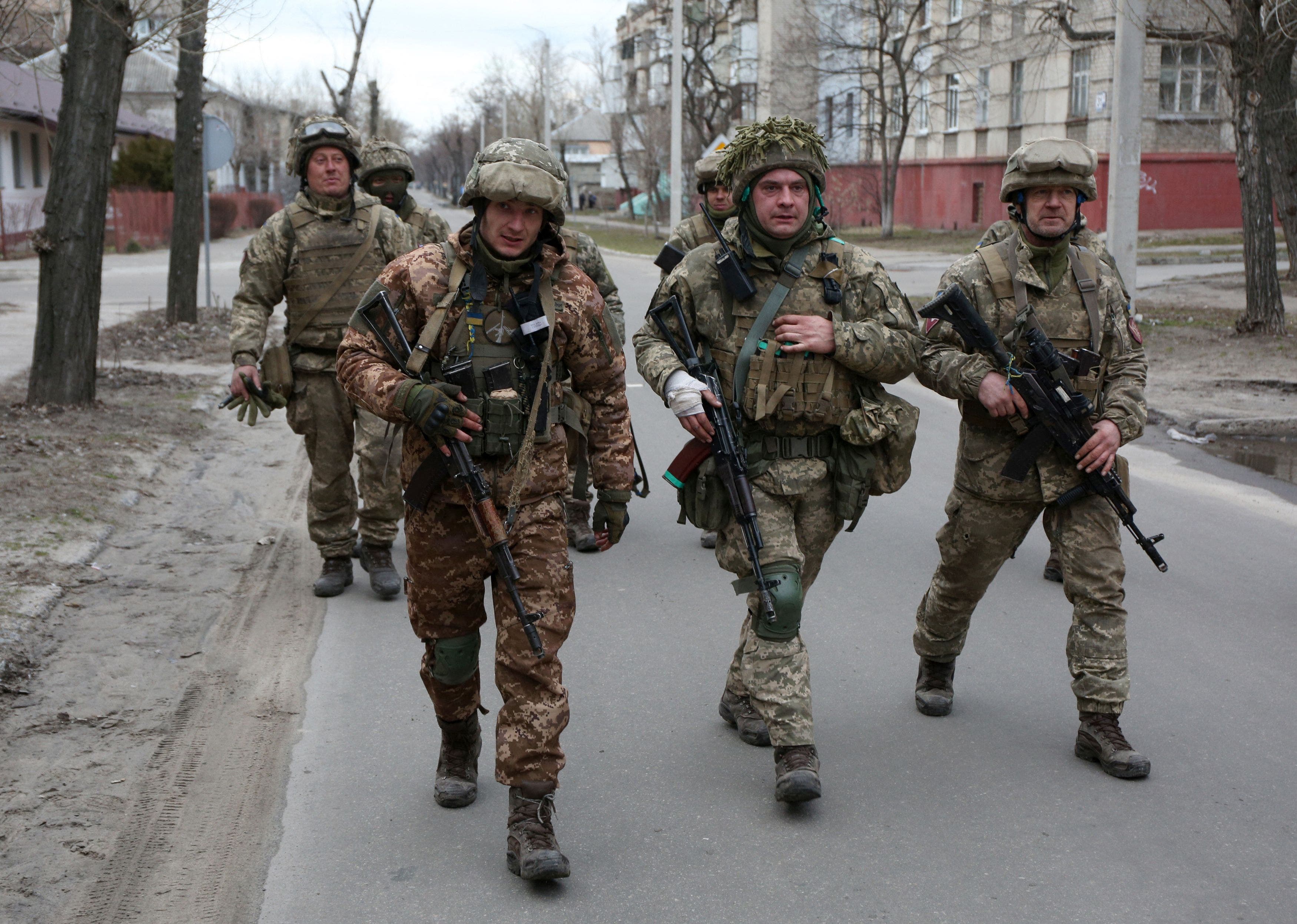Russian Military Strategy
Russia ukraine war russian – The Russian military strategy in the Ukraine war has been characterized by a combination of traditional and modern tactics. The Russian military has relied heavily on artillery and airstrikes to soften up Ukrainian defenses, followed by ground forces to take and hold territory. Russian forces have also employed a variety of electronic warfare and cyberattacks to disrupt Ukrainian communications and command and control systems.
The Russian military has several strengths that have been evident in the Ukraine war. The Russian military is one of the largest in the world, with over 1 million active personnel. The Russian military also has a large inventory of weapons and equipment, including tanks, artillery, aircraft, and missiles. The Russian military has also been modernized in recent years, with the introduction of new weapons and equipment.
Amidst the escalating conflict in Eastern Europe, the complexities of the Russia-Ukraine war continue to unfold. While the world’s attention is focused on this geopolitical crisis, it is imperative to remember the ongoing scientific advancements being made elsewhere. In the realm of space exploration, the recent discovery of NASA’s moon caves offers a glimpse of potential future exploration and habitation beyond Earth.
As the conflict in Ukraine intensifies, it is crucial to balance our concerns for humanity’s immediate well-being with the pursuit of knowledge and innovation that will shape our collective future.
However, the Russian military also has several weaknesses that have been exposed in the Ukraine war. The Russian military has been plagued by logistical problems, including shortages of food, fuel, and ammunition. The Russian military has also been criticized for its poor coordination and communication between different units.
Impact of Russian Tactics on the Civilian Population, Russia ukraine war russian
The Russian military’s tactics in the Ukraine war have had a devastating impact on the civilian population. Russian artillery and airstrikes have destroyed homes, schools, hospitals, and other civilian infrastructure. Russian forces have also been accused of committing war crimes, including the killing of civilians and the use of torture.
The war in Ukraine has sparked concerns about Russia’s intentions, with its military might on full display. However, amidst the turmoil, it’s worth noting that the conflict has also drawn attention to the vast wealth of certain individuals. Take JD Vance, the Ohio Senate candidate whose net worth is estimated to be around $8.3 million.
While the war in Ukraine rages on, such disparities serve as a stark reminder of the complexities and inequalities that exist in the world.
International Response to the War: Russia Ukraine War Russian
The international community has responded to the Russian invasion of Ukraine with a range of diplomatic and economic measures. These measures include sanctions, diplomatic isolation, and humanitarian aid.
Diplomatic and Economic Measures
The United States and its allies have imposed a series of economic sanctions on Russia, targeting its financial system, energy sector, and access to key technologies. The sanctions are designed to cripple the Russian economy and force the Kremlin to reconsider its invasion of Ukraine.
The European Union has also imposed sanctions on Russia, including a ban on the import of Russian oil and gas. The EU has also provided financial and military aid to Ukraine.
The United Nations has condemned the Russian invasion of Ukraine and called for an immediate ceasefire. The UN has also provided humanitarian aid to Ukraine, including food, water, and medical supplies.
Sanctions and Russian Behavior
The sanctions imposed on Russia have had a significant impact on the Russian economy. The ruble has plummeted in value, inflation has soared, and access to key technologies has been restricted.
However, it is unclear whether the sanctions have had any impact on Russia’s behavior in Ukraine. The Kremlin has continued to prosecute the war, and there is no evidence that it is considering a withdrawal.
Challenges and Opportunities for International Cooperation
The international response to the Russian invasion of Ukraine has been unprecedented in its speed and scope. However, there are a number of challenges that remain.
- The sanctions imposed on Russia have not had the desired effect of deterring the Kremlin from prosecuting the war.
- The international community is divided on how to respond to the Russian invasion, with some countries calling for more military aid to Ukraine and others urging a diplomatic solution.
- The humanitarian crisis in Ukraine is worsening, with millions of people displaced and in need of food, water, and shelter.
Despite these challenges, there are also a number of opportunities for international cooperation. The international community can work together to provide humanitarian aid to Ukraine, support refugees, and promote a diplomatic solution to the conflict.
Humanitarian Crisis and Displacement

The war in Ukraine has triggered a severe humanitarian crisis, leading to widespread displacement and suffering among the civilian population. According to the United Nations High Commissioner for Refugees (UNHCR), over 10 million people have been displaced within Ukraine, and more than 4 million have fled to neighboring countries.
The displacement has caused immense challenges for refugees and internally displaced persons (IDPs). Many have lost their homes, belongings, and livelihoods. They face difficulties accessing basic necessities such as food, water, shelter, and healthcare. In addition, they often experience trauma, stress, and anxiety as a result of the conflict.
Aid organizations play a crucial role in providing assistance to affected populations. They work to provide food, water, shelter, medical care, and other essential services to refugees and IDPs. They also provide psychological support and help to reunite families separated by the war.
